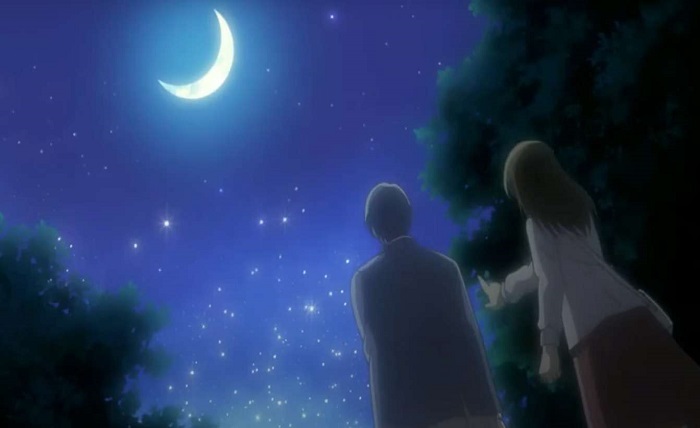Is Not the Moon Lovely? Unveiling the Meaning Behind this Poetic Phrase

The moon has captivated humanity for centuries, inspiring artists, poets, and lovers alike. Its ethereal beauty and ever-changing phases have served as a muse for countless expressions of wonder and longing. But have you ever heard the phrase “Is not the moon lovely?” and wondered what it truly means?
This seemingly simple statement, often rendered as “月が綺麗ですね” (tsuki ga kirei desu ne) in Japanese, packs a surprising depth of meaning. It transcends mere admiration for the moon’s beauty and delves into the realm of hidden emotions, unspoken desires, and cultural nuances.
Origins of a Cultural Expression
The phrase’s origins can be traced back to Soseki Natsume, a renowned Japanese novelist of the late 19th and early 20th century. In his 1909 novel “Kokoro,” the protagonist uses this phrase to confess his love for a woman, albeit indirectly.
Since then, “Is not the moon lovely?” has become a staple in Japanese culture, often employed as a subtle way to express love, admiration, or even longing for someone. Its association with love stems from the cultural notion of indirectness and restraint in expressing deep emotions.
Beyond Words: The Power of Subtext
The beauty of this phrase lies in its subtext. It avoids a direct declaration of love, leaving room for interpretation and creating a sense of mystery and intrigue. The speaker’s true feelings are veiled behind a seemingly innocuous observation about the moon, adding a layer of elegance and nuance to the expression.
This indirectness also allows the recipient to respond in kind, either reciprocating the unspoken sentiment or keeping their feelings hidden, maintaining the delicate balance of emotion.
The Impact on Literature and Media
The phrase’s cultural significance extends far beyond traditional literature. It has permeated popular culture, appearing in numerous anime, manga, and even video games. This continuous exposure has solidified its place as a recognizable symbol of unspoken love and longing in Japanese society.
Beyond the Borders of Japan
While the phrase originated in Japan, its message of unspoken love resonates deeply with people around the world. Its universality lies in its ability to capture the complexities of human emotions and the beauty of indirect communication.
The phrase has even found its way into Western media, appearing in films like “Lost in Translation” and “The Wind Rises,” further expanding its reach and impact.
Is Not the Moon Lovely? A Timeless Expression of Love
“Is not the moon lovely?” is more than just a poetic phrase. It’s a cultural touchstone, a symbol of unspoken love, and a testament to the power of human expression. Its ability to evoke emotions and inspire imagination makes it a timeless piece of language that continues to resonate with people across cultures and generations.
Conclusion
Next time you gaze upon the moon, remember the words “Is not the moon lovely?” and let them transport you to a world of unspoken feelings, cultural nuances, and the undeniable beauty of human connection. This phrase serves as a reminder that sometimes, the most profound emotions are best expressed through subtle gestures and poetic language.




